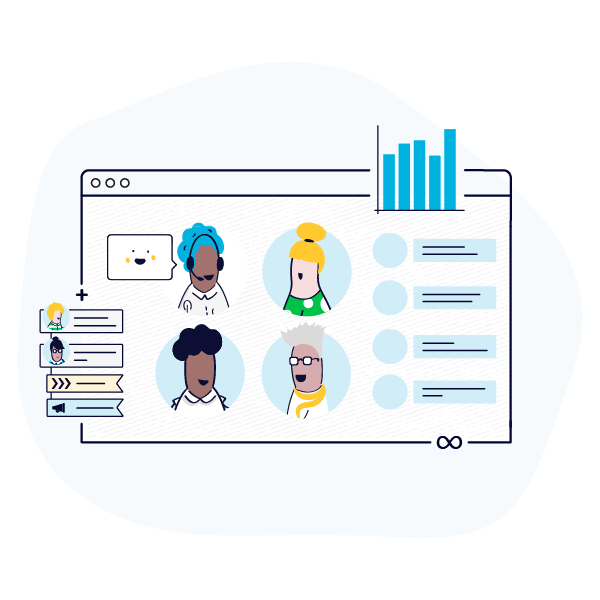In order to remain on top in the field of online shopping, which is always evolving, you need a dynamic pair – Enterprise Resource Planning and Customer Relationship management (CRM). Understanding the significance of these terms is vital for your online business.

The Powerhouse Combination: A Look Beyond Buzzwords
ERP software acts as the heart of the online company. It seamlessly integrates different back-office functions, including inventory management, order processing, accounting, and financial reports. Imagine a machine that makes sure your products are always on hand, orders are processed efficiently and financial data is readily available to make informed decisions.
However, CRM focuses on the front-office, fostering customer relationships. It helps you keep track of customer history, customize marketing campaigns, manage customer interaction, and provide excellent customer service. Establishing strong relationships with your customers is essential to the success of e-commerce, and CRM offers you the tools necessary to increase the loyalty of your customers and generate the return of customers.
The Ecomm Benefits of ERP and CRM Integration
The magic happens when both systems work together. Imagine a seamless flow of data in which your ERP system will update your inventory whenever you receive orders via your eCommerce site. This ensures accurate stock levels, preventing sales that are not accurate and unhappy customers. Additionally, the CRM data is utilized to create personalized customer experiences by analyzing their previous purchases and preferences.
The Strategic Decision is ERP vs. Customer Relationship Management
Which one to select first depends on the requirements of your business. Do you face a major customer acquisition problem? A robust CRM system is a solid starting point. However, if operational efficiency and faster delivery of orders are your main issues, focusing on ERP might be more beneficial. The long-term objective should be to achieve seamless integration between the two systems.
Construction of a Data Harmony Bridge
ERP and CRM, working together, create a data harmony bridge. CRM data provides insights about the behaviour and preferences of your customers. This information can then be utilized by the ERP system to improve products as well as inventory management, and even targeted promotions. Conversely, real-time stock availability information from the ERP system can be integrated into your CRM system to provide precise product information and delivery estimates to customers.
Ecomm on Autopilot: Automating Processes to Support Growth
Imagine an online storefront where orders are seamlessly processed from purchase to shipping, with the help of ERP and CRM. The automated efficiency frees valuable resources, which allows you to focus on strategic initiatives and business growth.
The Dynamic Duo Driving Ecomm Profits
ERP and CRM have the potential to have an impact that goes beyond streamlining your business operations. These dynamic partners can contribute substantially to the bottom line of your online business by building strong customer relationships by increasing brand loyalty, and optimizing the inventory management.
The reasons why ERP and CRM are crucial in the future
When your company expands into e-commerce and expands, it is essential to establish robust ERP and CRM system in place. This will help you manage the complexity of your business, keep an edge over your competitors and develop an image that is centered around customers.
The future of online shopping lies in using data to make it more effective. ERP and CRM, when combined, provide the data and tools necessary to make data-driven decisions customize customer experiences and navigate an ever-changing online marketplace. Let your company thrive by using these dynamic duos, and watch as your e-commerce journey grows to new levels.